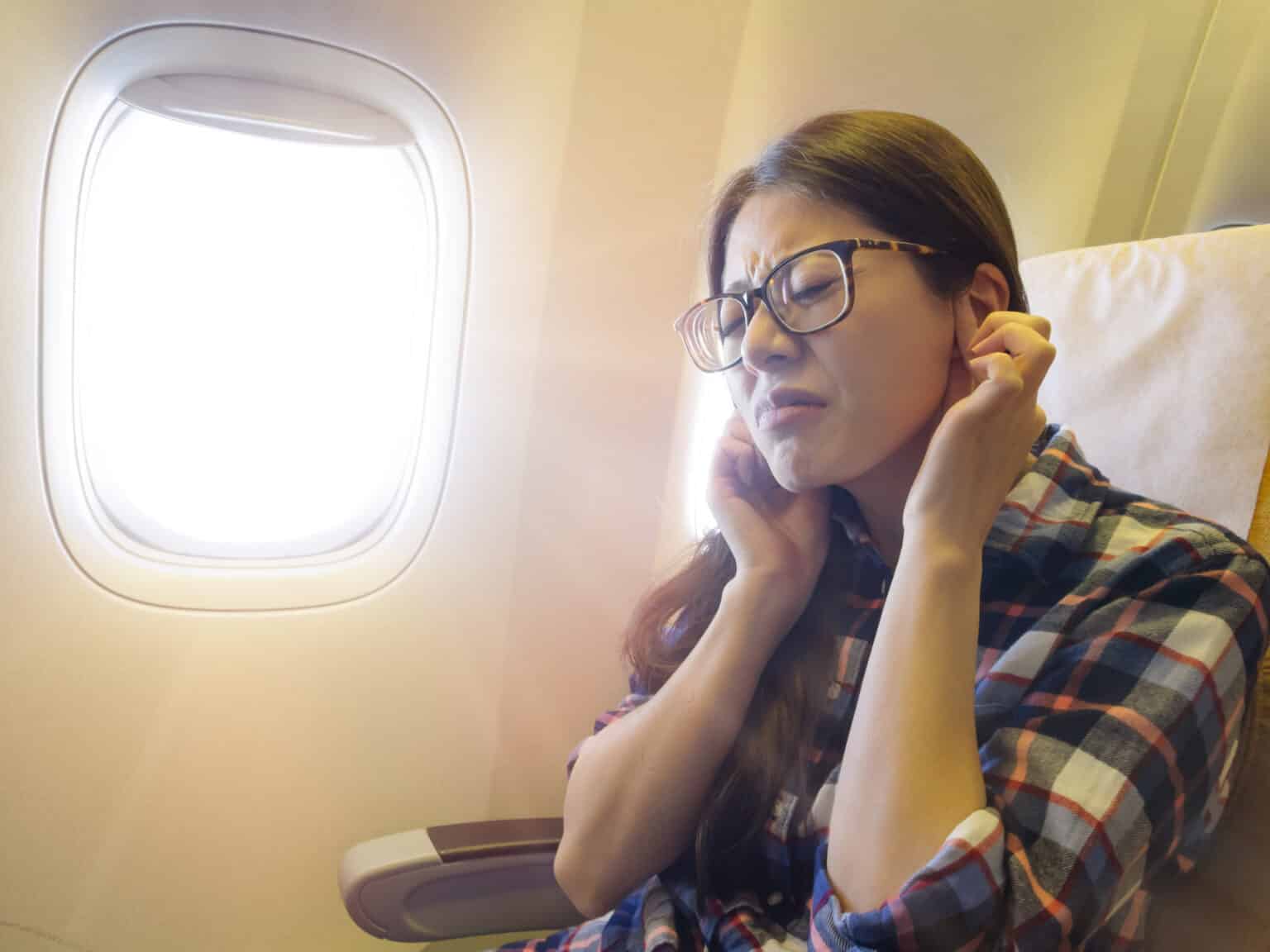Many things can worsen tinnitus symptoms, including flying. Let’s examine why air travel can be hard for tinnitus sufferers as well as steps you can take to help minimize your symptoms next time you travel.
What is Tinnitus?

Tinnitus is often described as a ringing in one or both ears. However, some people hear clicking, buzzing, hissing, clicking or other similar noises as well. Some people experience acute symptoms that resolve on their own, while others can have chronic tinnitus for months or even years.
Tinnitus is caused by a variety of different conditions, including hearing loss and ear infections. However, a clear cause cannot always be found. Additionally, many people experience tinnitus triggers that can worsen the noise. For some, flying is one of those triggers.
Why Flying Can Worsen Ringing in Ears
Ear symptoms are a common problem caused by flying. Many of us have experienced clogged or plugged ears when we fly, particularly on takeoff or landing. That is because the quick changes in air pressure strain the eardrum. This is commonly referred to as airplane ear.
Symptoms of airplane ear can often be minor, with slight fullness and discomfort in the ear being the only symptoms. However, in more severe cases, people can experience tinnitus, vertigo, intense pain and moderate to severe hearing loss.
Additionally, air travel can be loud and stressful; both things can worsen tinnitus for some people.
Four Ways to Minimize Tinnitus Symptoms on a Flight
Before your next flight out of Santa Fe Regional Airport, keep in mind the following tips to minimize your tinnitus while you travel:
- Wear noise-canceling headphones or earmuffs. While you don’t have to wear them the entire flight, they can be especially helpful during takeoff when engines are at their loudest. Avoid earplugs, as these can actually intensify your tinnitus.
- Sit away from the engine. Try to select an aisle seat towards the front of the plane, as this will be quieter than window seats or those further back.
- Avoid flying when congested. If you have a cold or bad allergies that are causing nasal congestion, try to avoid flying. The congestion can clog your Eustachian tubes as well, making it harder for them to equalize pressure in your ears and leading to a host of unpleasant symptoms. If you can’t reschedule your flight, consider taking a decongestant beforehand to relieve congestion.
- Try to stay calm before and during your flight. Stress can increase your tinnitus symptoms. Try to get a good night’s sleep before your flight and engage in calming activities like meditation or breathing exercises. Watch movies or listen to music on the flight to help distract you and potentially minimize or mask your tinnitus.
To learn more or to get help managing your tinnitus symptoms, call Southwestern Hearing & Balance today.
